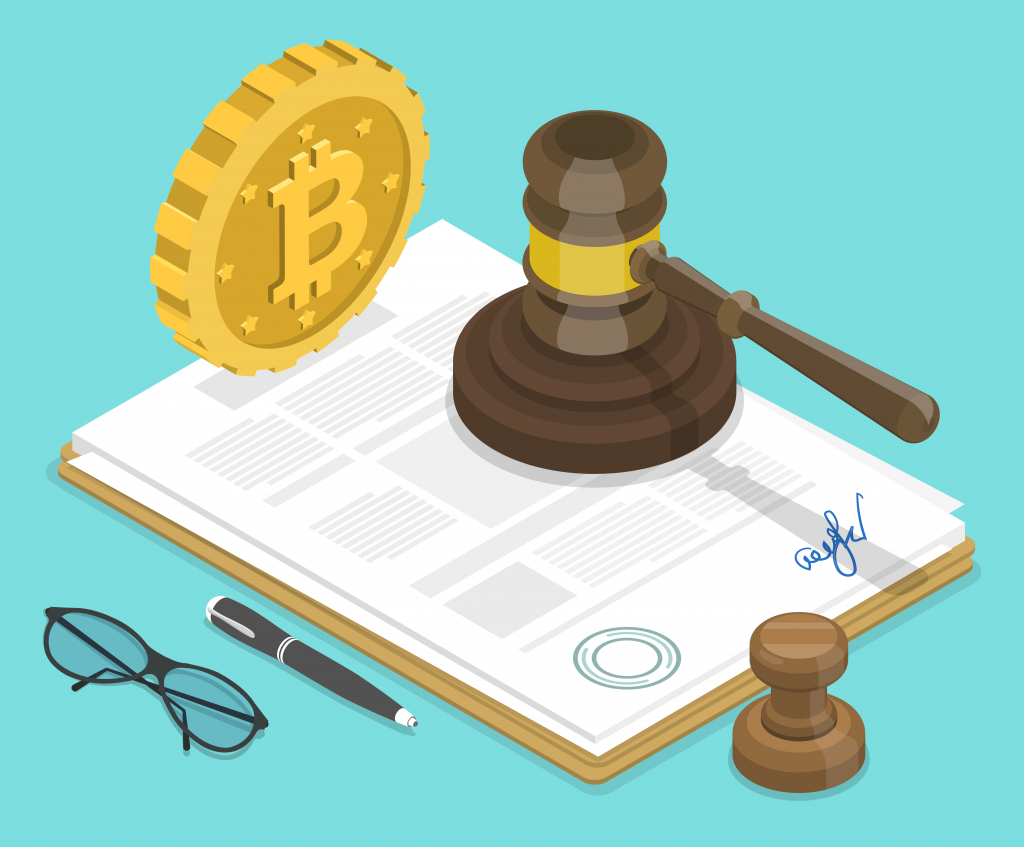Even if you are not following the financial and business news too closely, you are bound to come across references to ICOs every now and then. The startup market has got the taste of this new capital raising process, and it seems that there is an ICO for every project out there. True, it is much easier to raise funds via an ICO than by turning to venture capitalists, as VCs usually demand much more than a white paper and a promising idea.
On the other hand, the popularity of ICOs is fueled by the never-fading interest on the part of the investors. Excited by the success of the major coins, people are ready to invest into new coins launched by various startups hoping to become crypto millionaires.
The successful ICOs attract both the new startups and the investors alike forming a cycle drawing in more and more participants. Both the startups’ growing determination to raise funding for their project through an ICO and the investors’ willingness to support initial coin offerings add to the ICO hype. The available ICO statistics show that while in 2017 the total number of ICOs was 210, in the first five months of 2018 there are already as many as 428 ICOs currently running or closed.
Prudent investors are watching this phenomenon with a degree of caution. Such explosive growth may be an indicator of a bubble that is about to burst crushing the hopes of startups and investors alike. The statistics show that nearly half of all ICOs launched in 2017 failed in the end. At the same time, the crazy popularity of ICOs can be an advantage for those who wish to use the hype to make some not-so-honest money and disappear.
Yet, we are not going to say that ICOs have no future. On the contrary, we believe that ICOs are entering the stage when only the most transparent, trustworthy and business-oriented ICOs will succeed. Moreover, the trends we observe in the today’s world clearly show that cryptocurrencies and initial coin offerings are already reshaping the age-old procedures and traditions of doing business.

ICOs and global finance
Can ICOs and crypto-innovations truly disrupt the financial sector as we know it? The expert opinions on this matter are sometimes exactly opposite. Michael Jackson, a partner in Mangrove Capital Partners, a well-known European venture capital firm, warns the VCs about the advance of ICOs and the need to embrace this new trend and adapt their processes to the newly emerging opportunities.
At the same time, Mark Carney, the Governor of the Bank of England and the Chair of the Financial Stability Board, asserts that the “crypto-assets do not pose risks to global financial stability at this time. This is in part because they are small relative to the financial system”. According to the FSB’s research, the crypto-assets amount to no more than 1% of the global GDP, thus their effect can be ignored. Rather, more attention should be focused on the investor protection measures.
As usual, the truth is somewhere in-between. Indeed, at its current state, the crypto market is still too young to cause a true revolution in the financial sector. At the same time, the increasing number of successful crypto projects in the finance and banking industry should be given the due consideration.
The blockchain is snapping at the heels of the traditional banking and trading and taking over the fields that have been the territory of banks and stock exchanges for years. For example, TenX is working on the solution allowing to convert cryptocurrencies into fiat money and withdraw it anywhere at no commision. SALT Lending offers cash loans backed by crypto assets as the security. WiseWolf Fund’s AI-driven investment platform generates investment forecasts faster and more accurately than any stock exchange expert.
Thus, in this matter, we tend to agree with Mr. Jackson in his recommendations not to ignore the growth of the ICO and cryptocurrency market and to be prepared to keep in step with the new technology. Particularly, the venture capitalists should proactively research the ways to integrate ICOs in their traditional flows of supporting promising projects.
 ICOs and national legislation
ICOs and national legislation
Since the fall of 2017, the crypto world has repeatedly been shaken by the news of various restrictions and regulations that governments impose on crypto transactions. The first major blow came from China which banned all ICOs and cryptocurrencies altogether. Shortly after, South Korea followed with a similar measure.
Other governments were not as strict, however, the effect of their interventions was no less considerable. The US SEC regulation bringing the tokens issued in ICOs under the securities regulation has effectively prohibited US citizens both from launching ICOs and participating in token sales.
The European Union is not trying to openly ban ICOs while making attempts to control them. The EU governments issue warnings on the risks of investing in ICOs and the ICO frauds. You can read more on the position of different nations towards ICOs in our blog.
All these measures mean that the hype around initial coin offerings has reached the upper echelons and that they are considered influential enough to require government regulations. On the one hand, there are billions of untaxed dollars circulating in the crypto market, and tax agencies are trying to bring them under the tax laws.
For example, in February 2018, Coinbase crypto exchange notified 13,000 users that their account data was going to be released to IRS. Initially, IRS demanded the information on as many as 500,000 users, however, the exchange went to court and managed to reduce this number. The 13,000 accounts to be provided are those with the highest amount of crypto transactions.
On the other hand, governments are trying to regulate ICOs due to an increasing number of ICO scams. Too many investors have already fallen victim to the scheme that is based on the almost non-regulated procedures of initial coin offerings.
ICOs and financial crime
The deregulated nature of ICOs is an advantage for startups that can create an ICO with only a white paper and a promise, for investors that can participate in a coin launch and profit from the crypto market fluctuations, and for scammers who use ICOs as a cover-up for their dirty schemes. The recent ICO hype is creating the favorable conditions both for bona fide startups and frauds.
Unlike IPOs and venture capital attraction, ICOs are almost unregulated from the legal point of view. The standard components of a new coin launch – an ICO website, a white paper, an expert team, a smart contract and a wallet – can be easily put together by a small developer team. A massive promotional campaign – and the ICO countdown starts. Everything seems entirely legit until the “project” vanishes with the money they managed to raise.
The most sure-fire strategy to use if you do not want to become cheated by scammers is to do a thorough research on the ICO you wish to join. We have put together a checklist of things to watch for in an ICO to detect a scam.
At the same time, the governments worldwide recognize the danger of ICO scams, as their size is sometimes astonishing. In April 2018, we witnessed the largest exit scam of all times – the PinCoin-Ifan case where scammers stole $660 million and disappeared. The scam affected 32,000 investors, although a report classifying PinCoin as a Ponzi scheme went public as early as in February 2018.
The PinCoin and Ifan ICOs were running in Vietnam, a country where crypto payments have been illegal since October 2017. Now the Vietnamese government is clamping down even tighter with a ban on the crypto mining hardware import.
While it may seem that the government regulations are sometimes too harsh and may kill the main advantage of the crypto market – its deregulation, most of them are aimed at preventing crypto crime. The ICO fever is filling the sails of good faith companies and scammers alike, and it is going to be a tough job to find the balance between squeezing out scammers and maintaining the crypto freedom.

A hype, a bubble… or a new way of doing business?
Despite the cryptocurrency and ICO popularity, many people still think of them as something not worth their attention. Any rush is always followed by a collapse, and this is what scares many of us when we think about investing into ICOs or trading in cryptocurrencies.
However, let’s take one step back and zoom out a bit. In fact, we are witnessing one of the largest disruptions in the global economy. The crypto is not only about currencies, coins, and ICOs. The main thing is the blockchain with its decentralized and distributed structure. The blockchain technology is steadily gaining ground in all industries offering a cost-effective and transparent mechanism of performing transactions, storing data and exchanging assets.
The ICOs are just a tip of the iceberg, a convenient means of fundraising for startups. With due diligence, you can find a company pursuing an interesting idea that you may wish to support. On the other hand, if you have an idea for a startup and want to jump in quickly, launching an ICO is just the thing for you. We can help you get your ICO off the ground and develop the most effective infrastructure for it. Visit our website and contact us with any questions on preparing, promoting and running an ICO.